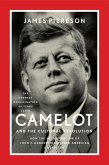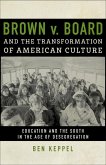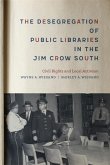The study of the impact of Black Power Movement (BPM) activists and organizations in the 1960s through '70s has largely been confined to their role as proponents of social change; but they were also theorists of the change they sought. In The Revolution Will Not Be Theorized Errol A. Henderson explains this theoretical contribution and places it within a broader social theory of black revolution in the United States dating back to nineteenth-century black intellectuals. These include black nationalists, feminists, and anti-imperialists; activists and artists of the Harlem Renaissance; and early Cold War-era black revolutionists. The book first elaborates W. E. B. Du Bois's thesis of the "General Strike" during the Civil War, Alain Locke's thesis relating black culture to political and economic change, Harold Cruse's work on black cultural revolution, and Malcolm X's advocacy of black cultural and political revolution in the United States. Henderson then critically examines BPM revolutionists' theorizing regarding cultural and political revolution and the relationship between them in order to realize their revolutionary objectives. Focused more on importing theory from third world contexts that were dramatically different from the United States, BPM revolutionists largely ignored the theoretical template for black revolution most salient to their case, which undermined their ability to theorize a successful black revolution in the United States.
This book is freely available in an open access edition thanks to TOME (Toward an Open Monograph Ecosystem)-a collaboration of the Association of American Universities, the Association of University Presses, and the Association of Research Libraries-and the generous support of The Pennsylvania State University. Learn more at the TOME website, available at: openmonographs.org, and access the book online at http://muse.jhu.edu/book/67098. It is also available through the SUNY Open Access Repository at http://hdl.handle.net/20.500.12648/1704.
This book is freely available in an open access edition thanks to TOME (Toward an Open Monograph Ecosystem)-a collaboration of the Association of American Universities, the Association of University Presses, and the Association of Research Libraries-and the generous support of The Pennsylvania State University. Learn more at the TOME website, available at: openmonographs.org, and access the book online at http://muse.jhu.edu/book/67098. It is also available through the SUNY Open Access Repository at http://hdl.handle.net/20.500.12648/1704.
Dieser Download kann aus rechtlichen Gründen nur mit Rechnungsadresse in A, D ausgeliefert werden.









